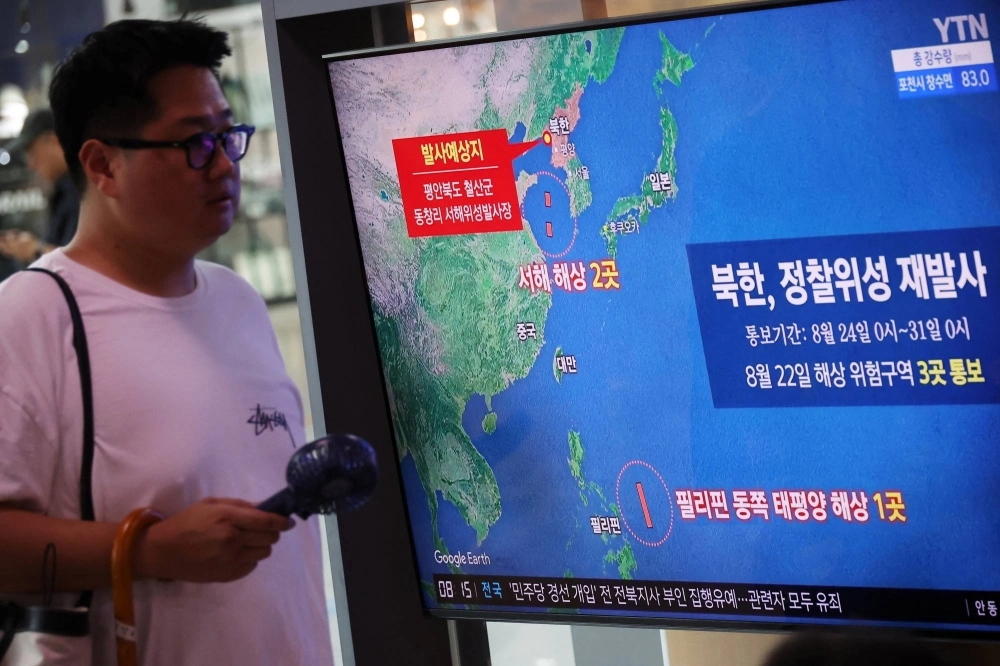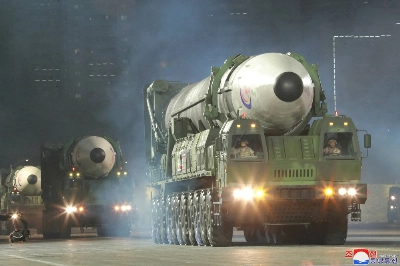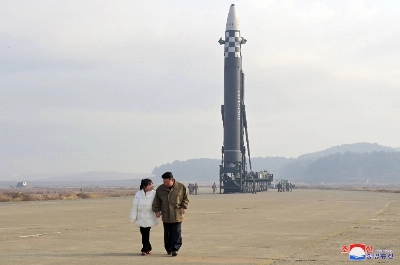North Korea has notified Japan of plans to launch a rocket carrying a satellite between Wednesday and Dec. 1, the Japanese government said Tuesday, with Pyongyang brushing away warnings from Tokyo and Seoul not to go ahead with the move.
Prime Minister Fumio Kishida’s office said it had “strongly demanded” that North Korea halt preparations for the launch, with Kishida later adding that Japan was preparing for “unforeseen circumstances” and cooperating with the United States, South Korea and others.
“Even if the purpose is to launch a satellite, using ballistic missile technology is a violation of a series of United Nations Security Council resolutions,” Kishida told reporters.




















With your current subscription plan you can comment on stories. However, before writing your first comment, please create a display name in the Profile section of your subscriber account page.